Live-in care vs other types of care
Finding the right support matters. Here’s how live-in care compares with other care options to help you make an informed decision.
Find a carerCall us
6,000+ Carers
Select from over 6,000 qualified carers
Fast matching
Care can begin in as little as 24 hours
Across Great Britain
We have organised care in every GB postcode
Cost efficient
Costs on average 35% less than traditional services
How does live-in care compare with the other types of care?
When choosing care for yourself or a loved one, it’s important to understand how each care option differs. Live-in care stands out as a highly personalised solution that allows people to stay in the comfort of their own home, offering one-to-one support and a familiar environment. Below is a breakdown of how live-in care compares to other common care types including care homes, nursing homes, assisted living and visiting care.
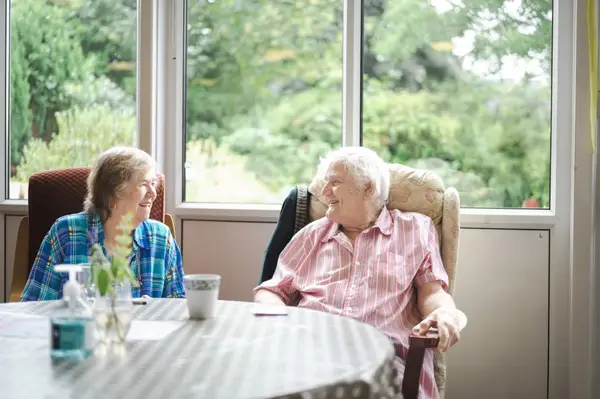
Live-in care vs care homes
While care homes provide residential accommodation with group activities and basic medical support, they offer limited independence and personalisation. By contrast, live-in care maintains independence, provides extensive personalised support, and allows individuals to stay in a familiar home setting. Care homes typically cost £1,300 - £2,500 per week, whereas live-in care with Elder starts from £1,150 per week, depending on needs.
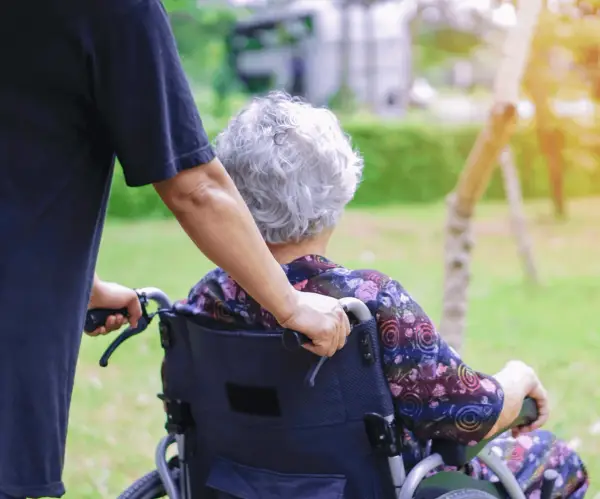
Live-in care vs nursing homes
Nursing homes are suitable for people needing high medical support but often come with low independence and a regimented routine, typically costing £1,500+ per week. Live-in care offers a more flexible lifestyle with 1:1 companionship, tailored routines and the comfort of home, although medical support is basic unless additional nursing is arranged.
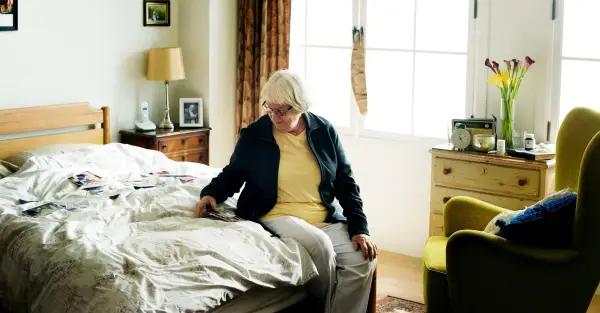
Live-in care vs assisted living
Assisted living offers individuals a private flat with optional community activities, providing a medium level of independence. However, medical support is basic and personalisation is moderate. Costs start around £1,500+ per week plus additional fees. Live-in care offers greater personalisation, continuous support and excellent care options for couples wishing to remain together at home.
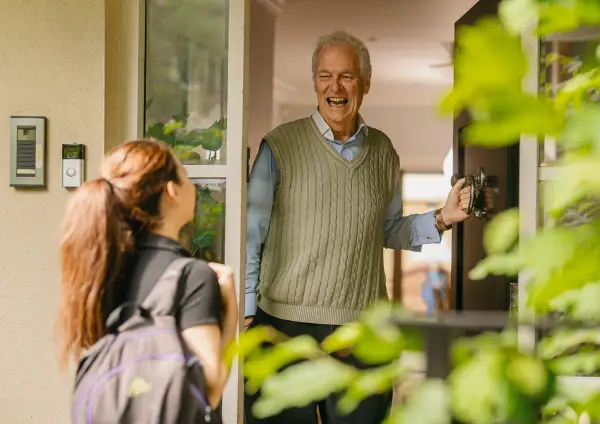
Live-in care vs visiting care
Visiting care is more affordable starting from £30 per hour, but support is time-bound with no continuous companionship. It suits those with lower needs, but cannot match the reassurance and 24-hour presence of live-in care. Live-in care ensures ongoing support, high independence, and the ability to maintain daily routines.

Key advantages of live-in care
- Stay in the comfort of your own home
- One-to-one personalised support
- High independence and familiarity
- Ideal for couples wishing to remain together
- Often pet-friendly and fully tailored to lifestyle
For families seeking a balance of comfort, continuity and independence, live-in care offers a unique solution that other care types struggle to match.
Learn more about live-in care.
When is live-in care the best option?
Live-in care is particularly suitable when someone wants to remain at home but needs ongoing support with daily tasks, mobility, medication reminders or companionship. It works well for people who value independence, familiar surroundings and the emotional comfort of staying near neighbours, pets and community.
Families who don’t want the upheaval of a move to a residential facility often find live-in care an attractive solution, especially if they want peace of mind knowing someone is available day and night.
It is also one of the most practical choices when two people need support – for example, couples who wish to stay together. In this scenario, live-in care can be more cost-effective than two residential places and allows partners to maintain their shared home life.
What do families value most about live-in care?
Many families choose live-in care not only for the practical benefits, but because of the emotional comfort it brings. A dedicated carer builds a relationship over time, learning routines, preferences and communication styles. This sense of familiarity can greatly improve confidence and wellbeing – especially for individuals living with dementia or memory loss, where change and relocation can be distressing.
With one-to-one support, tasks such as cooking, washing, medication reminders and mobility help happen naturally throughout the day rather than at scheduled times. This responsive approach means care adapts as needs change rather than forcing the person to fit into a timetable.
Specialist live-in care options
Live-in care is highly adaptable, which makes it suitable for a wide range of needs. Specialist options include:
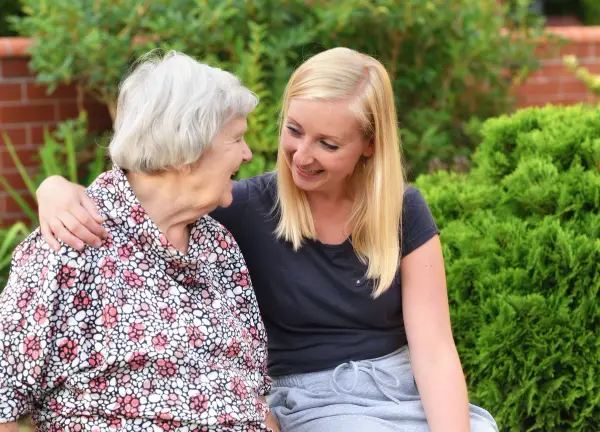
Dementia care
Routine, familiarity and continuity of environment often contribute to better outcomes for people with dementia. A live-in carer can reduce confusion and anxiety, support memory recall, and encourage safe engagement with daily activities.
Learn more about dementia care.

24-hour care
For those who require constant supervision, two carers can alternate shifts to ensure someone is awake and alert around the clock. This is often an alternative to nursing home admission and allows families to maintain home life even during later stages of illness.
Learn more about 24-hour live-in care.
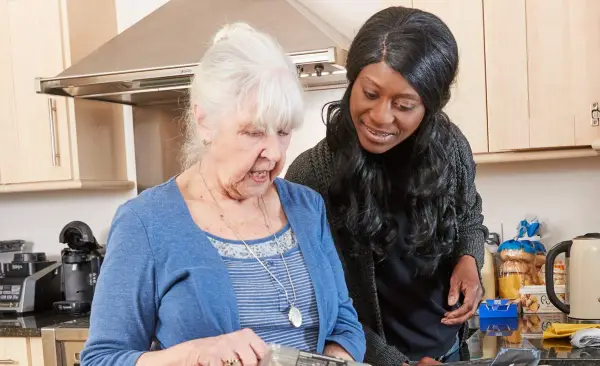
Respite or short-term live-in care
Short-term live-in care can support recovery after hospital discharge, give family carers a break, or provide interim help during periods of change or illness. It offers continuity without long-term commitment.
Learn more about short-term care.

When might another type of care be more appropriate?
While live-in care is flexible and personal, it isn’t always the perfect fit for every situation. People with complex, unpredictable or advanced medical needs may require the clinical oversight that nursing homes provide. Assisted living may appeal to those who enjoy community living but still want their own space, while visiting care suits those who only need light or occasional help.
Choosing between options often comes down to:
- The level of medical or nursing care required
- Whether someone prefers independent living or communal support
- Budget and funding availability
- Personality, lifestyle and emotional wellbeing
- Proximity to family, friends, home comforts and pets.
The right care type aligns with not only practical needs, but quality of life and personal preference.
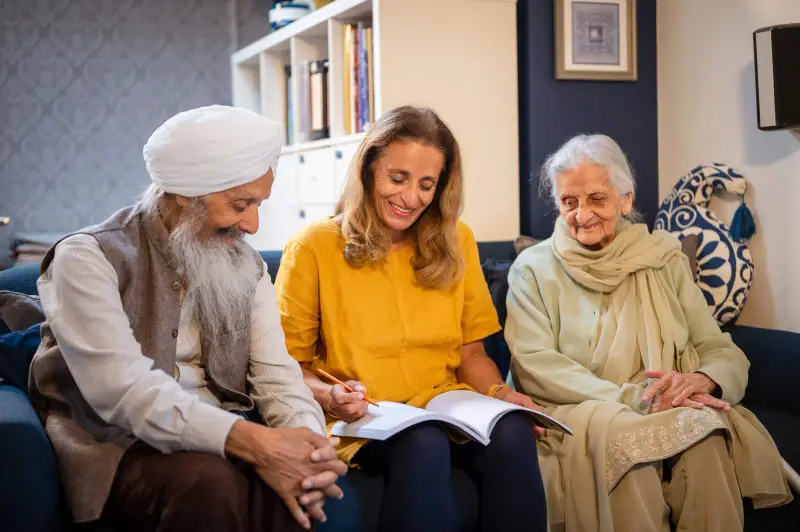
How to decide which care option is right
If you’re weighing up live-in care against other solutions, consider asking:
How much support is needed daily and overnight?
Occasional help often suits visiting care; ongoing support points towards live-in care or residential options.
Is staying at home a priority?
If remaining in familiar surroundings is important, live-in care allows just that.
Are social activities or a community environment desired?
Assisted living or care homes provide structured social interaction if independence is less important.
Does the person have high medical needs?
A nursing home or 24-hour live-in structure may be more suitable if medical backups are essential.
How does cost compare with value?
While prices vary, live-in care can be competitive (especially for couples) when compared with separate residential costs.
Every care option offers benefits – but for those who want independence, familiarity and ongoing support tailored to their lifestyle, live-in care provides a level of personalisation and comfort that other settings often can’t match. It allows people to continue living life on their own terms, surrounded by memories, community and home.
FAQs about live-in care vs other types of care
Still have questions?
0333 920 3648The main difference between a care home and a nursing home lies in the level of medical care provided. Care homes offer support with daily living activities and personal care, while nursing homes provide 24/7 trained nurses.
The main difference between a care home and home care lies in the setting where care is provided. Care homes are residential facilities where individuals live and receive 24-hour care. Home care, on the other hand, involves receiving care in the individual's own home.
The key difference between live-in care and a care home is the environment and type of support.
Live-in care provides one-on-one, personalised support where a carer lives with your loved one in their own home, allowing them to maintain independence and familiar surroundings.
Care homes offer round-the-clock care in a communal, residential facility, where individuals live alongside others and share facilities.
The main difference between live-in care and 24-hour care is the continuity of active support.
With live-in care, a single caregiver lives in your loved one's home, offering support and companionship but typically having scheduled rest periods.
24-hour care, conversely, involves multiple caregivers working in shifts to ensure constant, awake, and active support throughout the entire day and night.